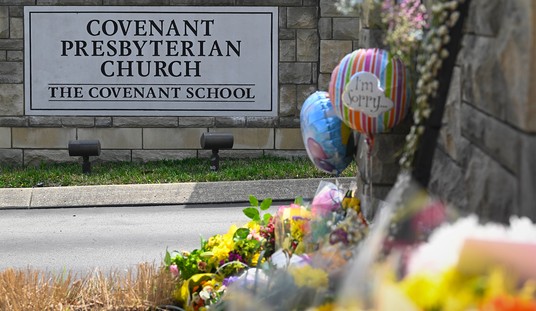The city of Baltimore, Maryland has a serious problem with violent crime. They’re not alone in that. It seems most of our larger cities have a problem with it. Like most other cities, Baltimore blamed guns for the problem rather than looking at the people who commit violent crimes.
In a misguided effort to combat that violent crime, the city created a Gun Trace Task Force. The taskforce was intended to…well, I’m not sure exactly, but probably to try and keep guns out of the wrong hands.
What happened, though, was something else entirely. The task force was accused of all kinds of horrible things. At least two members of the taskforce now face racketeering charges, as a matter of fact, but the rest of the task force isn’t exactly covered in glory. They were accused of violating the civil liberties of a number of people.
And now, the city has to pay for that.
In two cases, the Maryland Court of Appeals ruled that Baltimore City is responsible for compensating plaintiffs who filed lawsuits connected to the Gun Trace Task Force investigation.
The court ruled Friday that the city is liable in two of the cases involving the now-disbanded Gun Trace Task Force, saying the former GTTF members “acted within scope of employment.”
Attorneys for the city had argued that what the officers did was so outrageous and so illegal that the city should not have to pay out settlements with victims.
But the court determined the officers were acting inside the scope of their jobs, making the city responsible for the two settlements totaling $64,000.
Of course, some might wonder just how the court found such a thing.
Here’s the relevant portion of the ruling:
Before us, the City and the Department contend that the officers’ actions were outside the scope of employment as their actions were outrageous, personally motivated, and willfully criminal. Potts and James’s estate respond that the officers acted within the scope of employment as there is no evidence that the officers personally benefitted from their actions—i.e., the officers’ actions were designed to further the interests of the Department, not the officers.
We conclude that the stipulations in Potts and James establish that the officers’ conduct in each case satisfies the test for conduct within the scope of employment that this Court set forth in Sawyer, 322 Md. at 255-57, 587 A.2d at 470-71. The officers’ conduct in Potts and James is analogous to conduct in cases in which Maryland appellate courts have determined that government employees acted within the scope of employment. As such, we hold that, in Potts and James, the officers acted within the scope of employment, and, under CJ § 5-303(b)(1), the City is responsible for compensating Potts and James’s estate for the officers’ actions by paying the settlements that Potts, James’s estate, and the officers reached.
Evaluating the first prong of the Sawyer test, we conclude that the officers’ actions were in furtherance of the Department’s business as their actions were at least partially motivated by “a purpose to serve the” Department, and because there is no indication that the officers were “acting to protect [their] own interests[.]” Sawyer, 322 Md. at 255-57, 587 A.2d at 470-71 (citations omitted). Our conclusion is aupported by the wellestablished principle in Maryland case law that, generally, an officer’s arrest of a person is within the scope of employment. See Sawyer, 322 Md. at 260, 587 A.2d at 473. Although it is despicable that the officers stopped Potts and James without reasonable articulable suspicion and arrested them based on fabricated evidence, these circumstances alone do not render it inconceivable that the officers were acting within the scope of their employment. The stipulations in Potts and James contain no indication that the officers took or received anything of value from Potts or James, or were otherwise serving their own personal interests in making the arrests. The officers’ misconduct in Potts and James is distinguishable from their conduct in the conspiracy for which they were prosecuted in federal court. In contrast to the circumstances here, in furtherance of the federal conspiracy, in incidents that did not involve Potts or James, the officers seized money and drugs and kept the money and drugs for themselves and, as a result, were charged with racketeering. The lack of evidence of any personal benefit that the officers received from their conduct in these cases leads to a determination that, in arresting Potts and James, the officers were acting at least in part in furtherance of the business of the Department.
In assessing the second prong of the Sawyer test, it is plain that the Department did not authorize (and, in fact, expressly forbade) the officers’ misconduct involving Potts and James—which included disregarding a lack of reasonable articulable suspicion for the stops, planting handguns, beating Potts, making false statements in police reports, and testifying falsely at trial. In Sawyer, id. at 256, 587 A.2d at 471, though, this Court set forth ten factors for determining whether an employee’s actions were incidental to those that the employer authorized and thus within the employee’s scope of employment. Here, weighing the ten factors set forth in Sawyer leads to the conclusion that the officers’ conduct was incidental to conduct that the Department authorized. Although the Department clearly did not authorize the officers’ misconduct, and indeed their conduct violated the Department’s “express . . . orders[,]” under the factors set forth in Sawyer, the officers’ actions were “incident[al] to the performance of the duties” that the Department entrusted to them, and those actions did not render the officers’ overall conduct outside the scope of employment. Id. at 255, 587 A.2d at 470 (cleaned up).
In other words, because the officers in the task force didn’t try to gain personally from the arrests but were instead done to advance the goals of the department, it fell to the department to pay.
Honestly, my hope is that this serves as a lesson to law enforcement to stop treating guns as the problem, but I’m not holding my breath. The amount of money we’re talking about here is a drop in the bucket that they’re unlikely to even miss. Instead, they’ll chalk it up to bad cops and go back to doing what they’ve been doing, which is to treat guns like the cause of all their problems rather than do the hard work of actually addressing those problems.
Then again, what can you expect from a city like Baltimore?








Join the conversation as a VIP Member